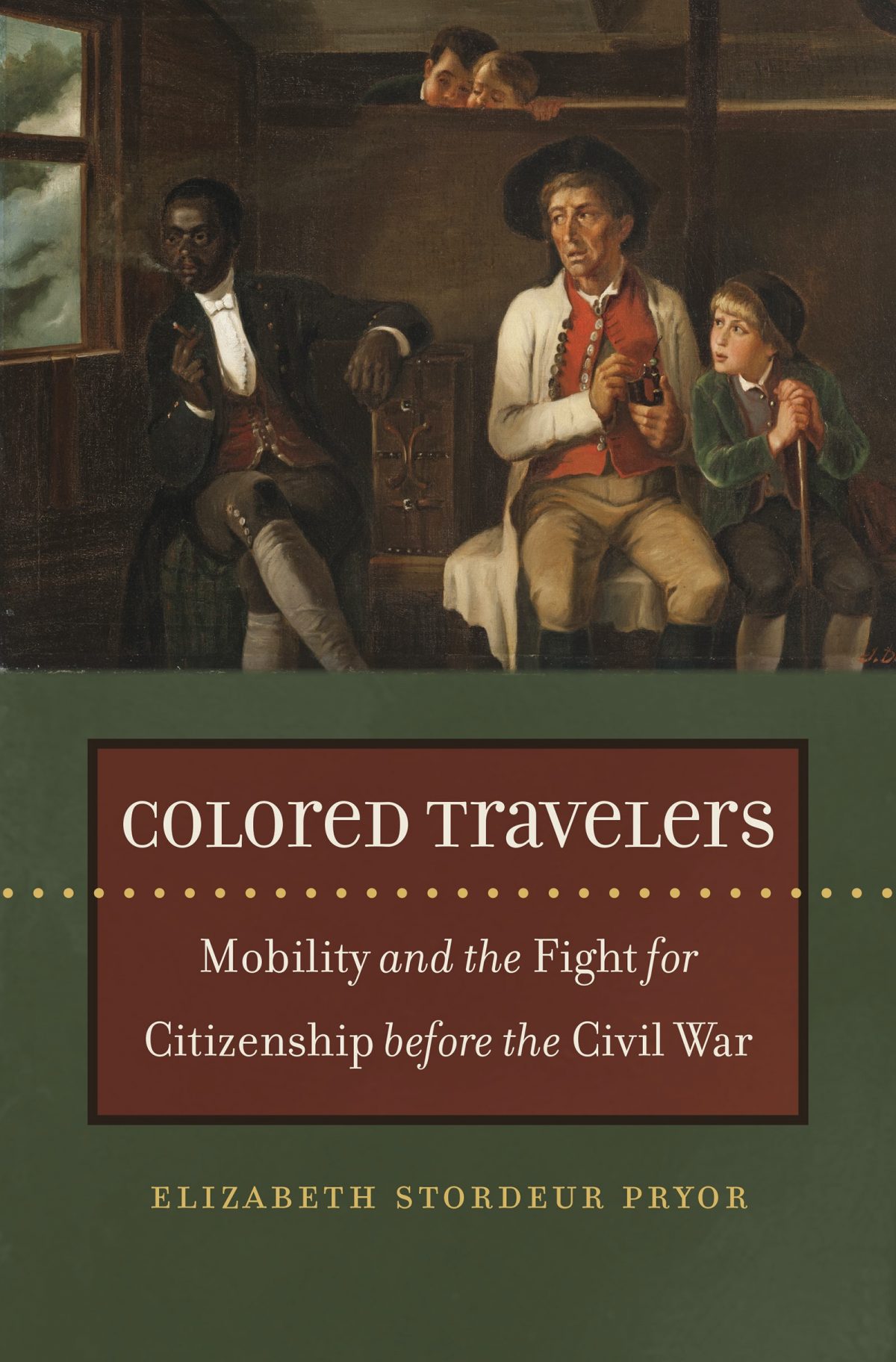Mobility is fundamental to free citizenship. It’s not a right enumerated in the U.S. Constitution, but it was treated as an assumption of the new republic, and it does appear in the UN Declaration on Human Rights. Because most of us have not had to fight for this right, it’s easy to forget just how important it is to personal autonomy.
For most of our history, the American racial hierarchy has relied on legal and social control of Black mobility to limit their power in society. This process can be understood both in terms of forced displacement and restrictions to movement. Think of the violent transportation of the international and domestic slave trade, the dangerous conditions for Black motorists that necessitated the publication of the Green Book, or the fight to integrate public transportation during the Freedom Rides of the Civil Rights Era. If you cannot control your movement, you lose economic and social opportunities and your human potential is constrained.
In Colored Travelers, Elizabeth Stordeur Pryor explores another era in which African Americans fought for their right of free movement, the period leading up to the Civil War. Perhaps unexpectedly, the book opens with the origins of the n-word. Pryor explains that for whites, the term could be used to control public space by marking Black people as “homegrown foreigners.” In contrast, working-class African Americans adopted it as a label for a self-created social identity, identifying insiders among the out group.
The use of the label by whites was significant because it denied Black folks legitimate status in the community—including the right to walk their own streets safely. According to Pryor, free movement was considered a right and privilege of American citizenship—and therefore something denied to African Americans as one more way to deny them their place as Americans.
During the process of emancipation in North and South, states restricted Black travel through formal and informal measures. Like their successors in the 1960s, Black activists fought back against travel restrictions, especially on America’s growing public transportation infrastructure. Their experiences were notably gendered, with men and women at risks for different reasons. And even free Black mobility was dangerous because whites conflated it with the escape of “dangerous” fugitive slaves.
As Pryor shifts from local to global travel, she describes the difficulties of Frederick Douglass and other elite Blacks as they sought US passports to affirm their right to state-sanctioned international travel. They were ultimately denied their hopes by a 1856 Department of State handbook that preceded Dred Scott in formally denying citizenship to Blacks. The struggle for passports, explains Pryor, took place even as white Americans decried the government’s imposition of passport control as an unreasonable restriction on their freedom to travel.
Once on a transatlantic voyage, Black travelers encountered a liminal experience between the restrictive United States—which crept aboard even British lines—and Britain as an “imagined space of liberation.” Though foreigners, they found new freedom of movement in a new country—and restored conviction that it was worth fighting for at home.
Pryor’s book, in addition to telling a new side of the struggle for Black freedom, is a reminder that mobility is an essential American freedom. While reading this in early June 2020, I watched as cities raced to impose curfews on Black Lives Matter protests weeks after permitting predominantly white armed protesters to demonstrate against stay-at-home orders in state capitols . It was chilling to see how even now, white Americans remain obsessed with their own freedom of movement even while failing to protect it as a universal right for our fellow citizens. If we’re lucky enough to be able to exercise this right, it’s worth thinking about how we can ensure others can too. Our republic depends on it.
